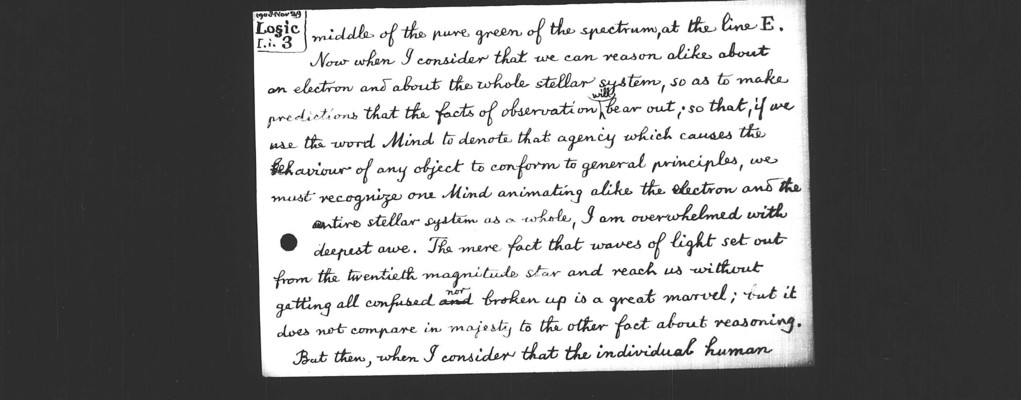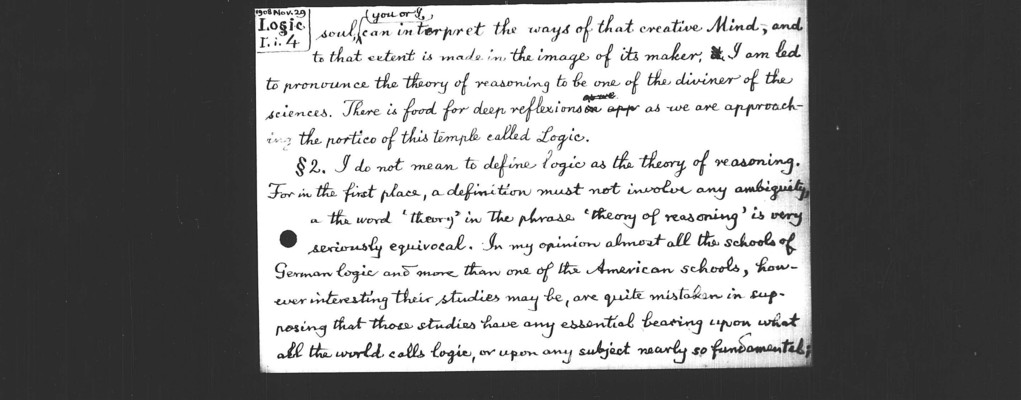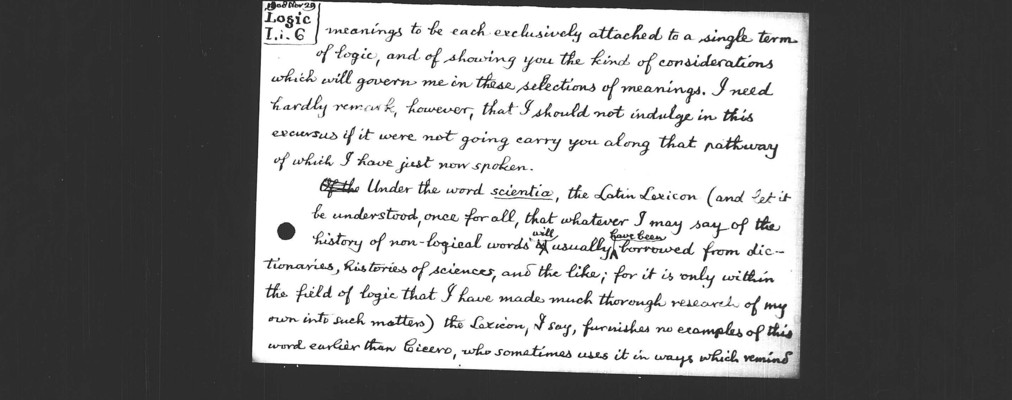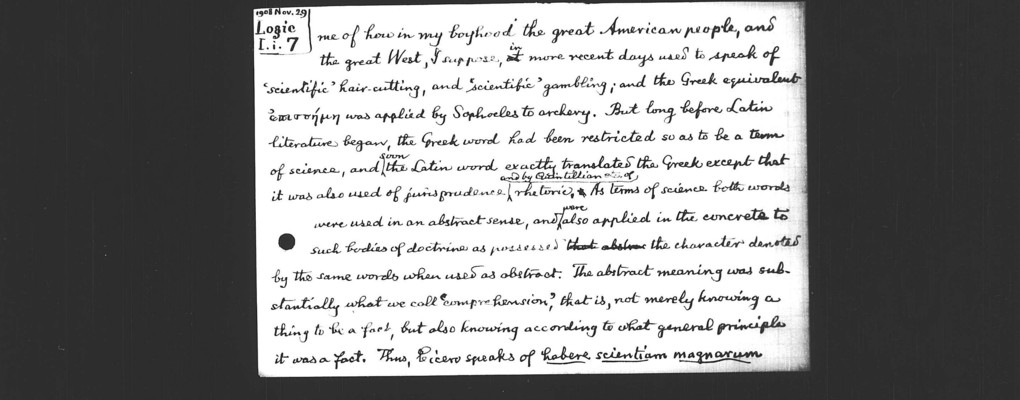Pages
100
1908 Nov 29 Logic I.i. 3
middle of the pure green of the spectrum, at the line E. Now when I consider that we can reason alike about an electron and about the whole stellar system, so as to make predictions that the facts of observation will bear out; so that, if we use the word Mind to denote that agency which causes the behaviour of any object to conform to general principles, we must recognize one Mind animating alike the electron and the entire stellar system as a whole, I a am overwhelmed with deepest awe. The mere fact that waves of light set out from the twentieth magnitude star and reach us without getting all confused nor broken up is a great marvel; but it does not compare in majesty to the other fact about reasoning. But then, when I consider that the individual human
101
1908 Nov. 29 Logic I.i. 4
soul, you or I, can interpret the ways of that creative Mind, and to that extent is made in the image of its maker, I am led to pronounce the theory of reasoning to be one of the diviner of the sciences. There is food for deep reflexions as we are approaching the portico of this temple called Logic.
§2. I do not mean to define logic as the theory of reasoning. For in the first place, a definition must not involve any ambiguity, [a ??] the word 'theory' in the phrase 'theory of reasoning' is very seriously equivocal. In my opinion almost all the schools of German logic and more than one of the American schools, however interesting their studies may be, are quite mistaken in supposing that those studies have any essential bearing upon what all the world calls logic, or upon any subject nearly so fundamental;
102
1908 Nov 29 Logic I.i. 5
and this I must endeavour to lead you to see before I can take up the proper subject of this chapter. But the pathway to the point of view from which this will clearly appear will be somewhat long.
In the second place, the science of logic should deal, as it always has, with some topics that are without the borders of a theory of reasoning. My general intention in this chapter is to take my stand upon common sense and to use words in their ordinary senses, without attempting to give them any unusually precise meanings. However, and the word 'science' is not a term of logic, I will take the opportunity of illustrating upon this outlying word, the method I intend to pursue in selecting single precise
103
1908 Nov 29 Logic I.i. 6
meanings to be each exclusively attached to a single term of logic, and of showing you the kind of considerations which will govern me in these selections of meanings. I need hardly remark, however, that I should not indulge in this excursus if it were not going carry you along that pathway of which I have just now spoken.
Under the word scientia, the Latin Lexicon (and let it be understood, once for all, that whatever I may say of the history of non-logical words will usually have been borrowed from dictionaries, histories of sciences, and the like; for it is only within the field of logic that I have made much thorough research of my own into such matters) the Lexicon, I say, furnishes no examples of this word earlier than Cicero, who sometimes uses it in ways which remind
104
1908 Nov. 29 Logic I.i. 7
me of how in my boyhood the great American people, and the great West, I suppose, in more recent days used to speak of 'scientific' hair-cutting, and 'scientific' gambling; and the Greek equivalent ἐπιστήμη was applied by Sophocles to archery. But long before Latin literature began, the Greek word had been restricted so as to be a term of science, and soon the Latin word exactly translated the Greek except that it was also used of jurisprudence and by Quintillian [etc??], of rhetoric. As terms of science both words were used in an abstract sense, and were also applied in the concrete to such bodies of doctrine as possessed the character denoted by the same words when used as abstract. The abstract meaning was substantially what we call 'comprehension', that is, not merely knowing a thing to be a fact, but also knowing according to what general principle it was a fact. Thus, Cicero speaks of habere scientiam magnarum




